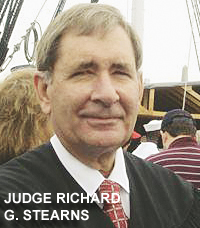 One of New England’s largest law firms has suffered a significant, and potentially costly, defeat at the hands of a federal judge.
One of New England’s largest law firms has suffered a significant, and potentially costly, defeat at the hands of a federal judge.
Boston-based Ropes & Gray’s troubles began in 2010 when plaintiff Cold Spring Harbor Laboratory filed a multi-million-dollar legal malpractice and breach of fiduciary duty suit in the Eastern District of New York against the firm and its former partner, Matthew P. Vincent.
Vincent, who worked in the firm’s intellectual property group in Boston until his resignation from the bar in 2009, is accused of mishandling the prosecution of a series of patent applications.
In its suit, the New York-based plaintiff claims that the U.S. Patent and Trademark Office denied a patent application Vincent filed on its behalf because he had copied another inventor’s work and otherwise “delayed and prejudiced [the company’s] efforts to obtain patent claims.”
Lawyers for Ropes and Vincent tried to put an end to the case by way of a motion to dismiss, heard on Jan. 10, which argued that the plaintiff’s allegations failed to state a claim for relief. But U.S. District Court Judge Richard G. Stearns in Boston shot down that bid just days after oral arguments, finding in an 18-page decision that there was more than enough to allow the case to proceed.
John O. Mirick of Worcester, Mass., local counsel for the plaintiff, says that the discovery “covered by our research scientists and patents is a very significant one, … so this is a case that has the potential for significant damages.”
Although the Mirick O’Connell lawyer declines to put an exact figure on those damages, the plaintiff’s New York attorneys stated in earlier court filings they expect judgment against the 1,000-lawyer firm and Vincent to be “no less than $37.5 million to $82.5 million,” plus punitive damages.
The case was moved out of New York last year after a judge there decided that Massachusetts, where the allegedly shoddy legal work was done, was the more appropriate venue.
Mirick says the case will now continue with discovery.
“As you always have in cases with experienced attorneys on both sides, the doors are open to settlement discussions,” he adds. “But there hasn’t been anything too detailed in that regard at this point.”
Philip Forlenza of Forlenza, Patterson, Belknap, Webb & Tyler in New York, who represents the firm, did not return a call for comment. Vincent’s attorney, Robert J. Muldoon Jr. of Sherin & Lodgen, could not be reached prior to deadline.
 New England Biz Law Update
New England Biz Law Update
